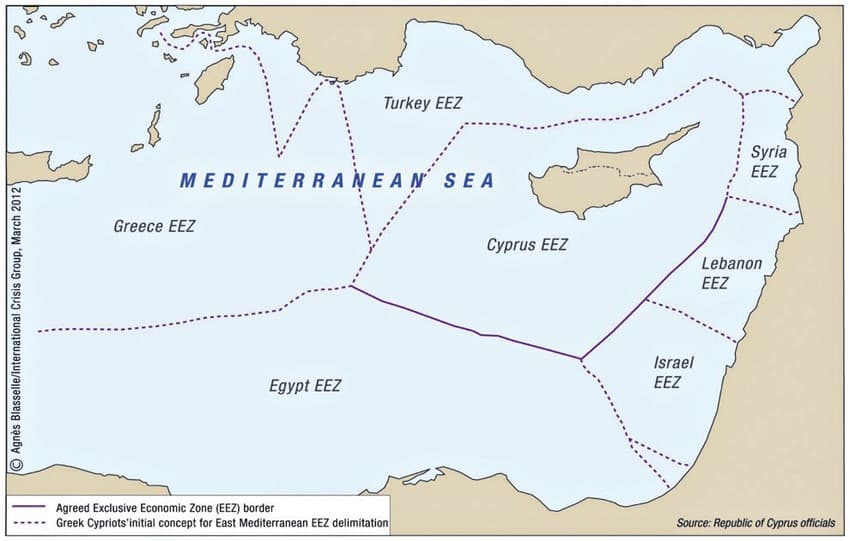The US Embassy in Turkey has made a blatant contradiction by claiming that "the United States as a matter of global policy does not take positions on other states' maritime boundary disputes" despite having a clear position against China in the South China Sea.
"There has been much commentary in the Turkish press regarding the so-called “Seville Map..." the US Embassy in Turkey said on Twitter.
In an image attached to the Tweet, the US Embassy in Turkey stated:
"The United States as a matter of global policy does not take positions no other states' maritime boundary disputes. With respect to this 'legal status' of the Seville map, the United States does not consider the Seville Map to have any legal significance. We understand the European Union does not consider the Seville Map to be a legally binding document. Maritime boundaries are for the states concerned to resolve by agreement on the basis of international law. The United States strongly supports good faith dialogue and negotiation and encourages Greece and Turkey to resume exploratory talks as soon as possible."
There has been much commentary in the Turkish press regarding the so-called “Seville Map”... pic.twitter.com/cCw6yYJ1Md
— U.S. Embassy Türkiye (@USEmbassyTurkey) September 21, 2020
The so-called Seville Map was first published by Juan Luis Suárez de Vivero and Juan Carlos Rodríguez Mateos from Seville University in the early 2000's. The map outlined shows the Exclusive Economic Zones of Greece and Turkey in the Eastern Mediterranean, according to the United Nations Charter Law of the Sea.

However, more importantly, the US Embassy in Turkey claims that "The United States as a matter of global policy does not take positions no other states' maritime boundary disputes." This has proven incorrect as Washington has taken a firm position to maritime disputes in the South China Sea.
On July 13 of this year, US Secretary of State Mike Pompeo in a press release published on the US Department of State website said "Beijing’s claims to offshore resources across most of the South China Sea are completely unlawful, as is its campaign of bullying to control them," showing that Washington does take positions in "other states' maritime boundary disputes."
Pompeo also stated "America stands with our Southeast Asian allies and partners [against China] in protecting their sovereign rights to offshore resources, consistent with their rights and obligations under international law."
These statements, made a little over two months ago, demonstrates that Washington does take clear positions in maritime disputes, but is once again choosing to appease Turkey by blatantly lying that "the United States as a matter of global policy does not take positions no other states' maritime boundary disputes."

